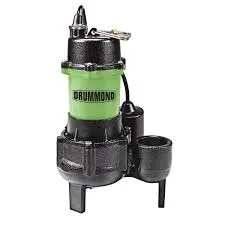Icelandic
- Afrikaans
- Albanian
- Amharic
- Arabic
- Armenian
- Azerbaijani
- Basque
- Belarusian
- Bengali
- Bosnian
- Bulgarian
- Catalan
- Cebuano
- Corsican
- Croatian
- Czech
- Danish
- Dutch
- English
- Esperanto
- Estonian
- Finnish
- French
- Frisian
- Galician
- Georgian
- German
- Greek
- Gujarati
- Haitian Creole
- hausa
- hawaiian
- Hebrew
- Hindi
- Miao
- Hungarian
- Icelandic
- igbo
- Indonesian
- irish
- Italian
- Japanese
- Javanese
- Kannada
- kazakh
- Khmer
- Rwandese
- Korean
- Kurdish
- Kyrgyz
- Lao
- Latin
- Latvian
- Lithuanian
- Luxembourgish
- Macedonian
- Malgashi
- Malay
- Malayalam
- Maltese
- Maori
- Marathi
- Mongolian
- Myanmar
- Nepali
- Norwegian
- Norwegian
- Occitan
- Pashto
- Persian
- Polish
- Portuguese
- Punjabi
- Romanian
- Russian
- Samoan
- Scottish Gaelic
- Serbian
- Sesotho
- Shona
- Sindhi
- Sinhala
- Slovak
- Slovenian
- Somali
- Spanish
- Sundanese
- Swahili
- Swedish
- Tagalog
- Tajik
- Tamil
- Tatar
- Telugu
- Thai
- Turkish
- Turkmen
- Ukrainian
- Urdu
- Uighur
- Uzbek
- Vietnamese
- Welsh
- Bantu
- Yiddish
- Yoruba
- Zulu
Telephone: +86 13120555503
Email: frank@cypump.com
des . 04, 2024 02:41 Back to list
ejector pump for basement
Ejector Pumps Essential Solutions for Basement Waste Management
When managing a home, especially one with a basement, proper wastewater management is crucial. This is where ejector pumps come into play. Ejector pumps are specially designed devices that move wastewater from one place to another, typically from lower to higher elevations. They are particularly useful in basements, where gravity drainage may not be feasible due to the level of the plumbing system. Understanding how ejector pumps work and their benefits can help homeowners make informed choices regarding their plumbing needs.
What is an Ejector Pump?
An ejector pump is a type of sewage pump that utilizes a motorized impeller to drive wastewater into a discharge line. Unlike traditional sump pumps, which merely remove water, ejector pumps can handle solid waste and sewage. These pumps are installed in a pit, typically referred to as a lift station. When wastewater from bathrooms, laundry rooms, or kitchen sinks flows into the pit, the ejector pump activates, grinding up solid waste and pumping the mixture away from the basement to a higher elevation, often connecting to the main sewer line or a septic system.
How Do Ejector Pumps Work?
The operation of an ejector pump is relatively straightforward. When the wastewater level in the pit rises to a certain point, a float switch activates the pump. The motor then powers the impeller, creating a centrifugal force that grinds and propels the wastewater mix through an outlet pipe. Ejector pumps are designed to handle a variety of materials, including water, waste, and even some non-biodegradable items, making them integral to managing sophisticated plumbing systems effectively.
Benefits of Ejector Pumps for Basements
1. Efficient Waste Removal Ejector pumps provide a reliable solution for removing wastewater from basement fixtures that are below the main sewer line. This ensures that wastewater is effectively relocated and does not accumulate, preventing costly damage or unsanitary conditions.
ejector pump for basement

2. Versatility Ejector pumps can handle both liquid and solid waste, making them ideal for handling sewage from bathrooms or laundry facilities located in the basement. This versatility makes them superior to standard sump pumps in various applications.
3. Space Saving Installing an ejector pump can save valuable space. Since they can be installed in a small pit, they require minimal footprint while providing substantial performance.
4. Preventing Backups and Odors With reliable ejector pumps in place, homeowners can effectively reduce the risk of sewage backups, which can cause unpleasant odors and health hazards. Regular maintenance ensures that obstructive issues are addressed promptly.
5. Enhanced Property Value For homes with basements equipped with bathrooms or laundry rooms, having a functioning ejector pump can enhance property value. Prospective buyers often prefer homes with efficient waste disposal systems, reducing long-term maintenance worries.
Maintenance of Ejector Pumps
It is essential to maintain ejector pumps to ensure their longevity and functionality. Regular inspections can help identify issues such as clogs or mechanical failures. Homeowners should also be mindful of what gets flushed down the toilet or drained into sinks, as certain materials can damage the pump or cause clogs.
Conclusion
Ejector pumps represent a critical aspect of effective wastewater management for basements, particularly when plumbing does not allow for gravity drainage. Understanding their function, benefits, and maintenance can help homeowners make informed decisions that contribute to their home’s overall efficiency and hygiene. By ensuring proper installation and upkeep, ejector pumps can provide many years of reliable service, making them a smart investment for any homeowner.
-
Horizontal Split Case Pump with GPT-4 Turbo | High Efficiency
NewsAug.01,2025
-
ISG Series Pipeline Pump - Chi Yuan Pumps | High Efficiency, Durable Design
NewsAug.01,2025
-
Advanced Flue Gas Desulfurization Pump with GPT-4 Turbo | Durable & Efficient
NewsJul.31,2025
-
ISG Series Vertical Pipeline Pump - Chi Yuan Pumps | Advanced Hydraulic Design&Durable Construction
NewsJul.31,2025
-
ISG Series Vertical Pipeline Pump - Chi Yuan Pumps | Energy Efficient & Low Noise
NewsJul.31,2025
-
pipeline pump - Chi Yuan Pumps Co., LTD.|High Efficiency&Low Noise
NewsJul.31,2025










